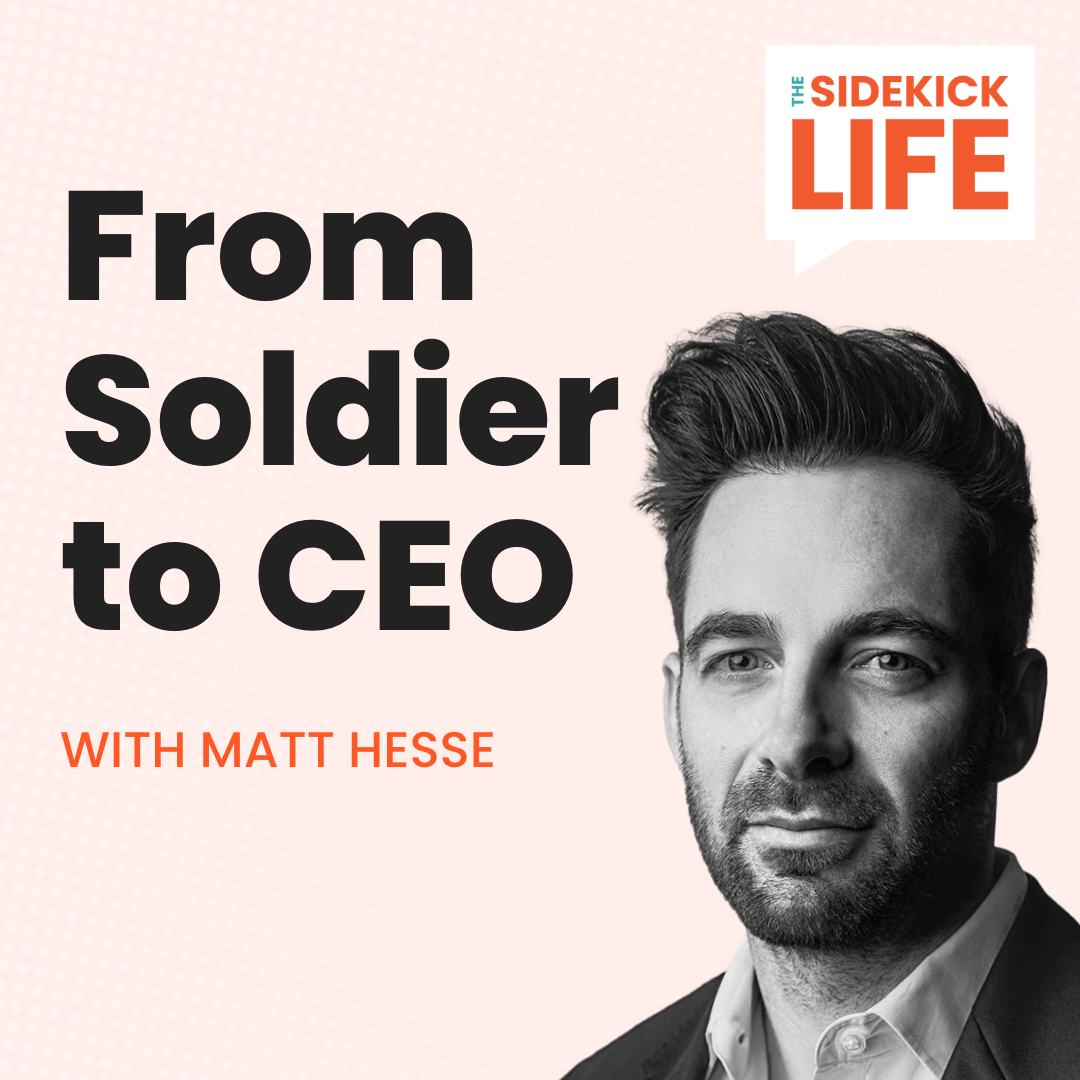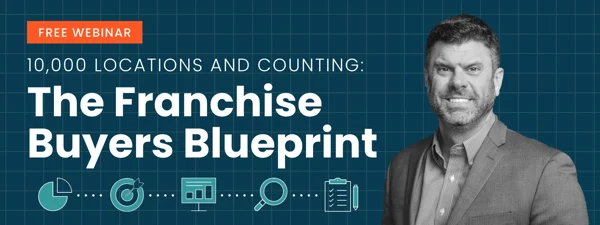Hosted by:
-

Ryan Zink
-

Tyler Altenhofen
The Truth About Passive Income: What You Really Need to Know
Passive income is the most searched—and most misunderstood—topic in the wealth-building world. Everyone wants to earn money while sleeping, but things are much more complicated than that.
In this episode of The Sidekick Life, co-founders Ryan Zink and Tyler Altenhofen break down the reality of passive income based on 20+ years of business experience, actual investments, and the systems they've developed to establish financial independence.
Whether you're starting from the ground up or expanding your enterprise, this guide will give you the insights, actionable tips, and mental shifts you need to create real passive income.
What Is Passive Income, Really?
Let’s clear up some common myths:
-
Passive income doesn’t mean never working again.
-
You don’t need a lot of money to get started.
-
Real estate isn’t 100% passive—you need systems in place.
As Ryan puts it:
"Passive income is money earned with less active effort—after the initial time, capital, or skill investment."
💡 The key? Your initial investment—whether money, time, or effort—must be put in upfront.
Ryan Zink’s Personal Passive Income Strategy
Ryan started his passive income journey at 22 years old—with just $18.40 in his bank account. His financial advisor believed in him, saying, "Acorns grow into oak trees."
Today, Ryan’s diversified portfolio looks like this:
-
37% Equities
-
10% Bonds
-
7% Whole Life Insurance
-
1% Retirement Accounts
-
<1% Cash
-
10% Real Estate
-
8% Alternative Investments
-
25% Business Equity
Ryan’s Core Passive Income Principles:
✅ Live beneath your means—way beneath.
✅ Concentration builds wealth; diversification preserves it.
✅ Invest in what you know—and partner with experts when you scale up.
Real Talk on Real Estate, Alternative Investments, & Business Equity
Real Estate
Ryan’s real estate strategy includes:
-
✅ Multifamily (phasing out due to market shifts)
-
✅ Upgraded commercial properties (find underperforming buildings, rehab, raise rents)
-
✅ Ground-up development (high risk, low excitement)
-
✅ Legacy farm property (long-term family control)
💡 Pro Tip: Get hands-on experience early—self-manage your own properties before hiring managers.
Alternative Investments
Ryan’s breakdown:
-
T-Bills for liquidity and low risk
-
Gold for long-term stability
-
Bitcoin for high-risk, high-reward exposure—investing based on trusted relationships, not hype
Business Equity
Ryan’s largest passive income streams come from:
-
Private equity exits (retaining equity post-sale)
-
Semi-absentee franchise ownership (partnering with operators who have skin in the game)
-
Franchise Sidekick (helping others buy franchises with confidence)
Ryan’s rule:
🔒 Only invest in businesses you control—or where you 100% trust the operator.
The Power of Mentorship & Getting the Right People
Ryan’s secret weapon? His “Survivor Alliance”:
-
Financial planner
-
CPA
-
Attorney
-
Business partners
-
Trusted operators
💡 Never settle for mediocre. Find people who’ve done what you want to do—and learn from them.
Teaching Financial Literacy to the Next Generation
For Ryan, passive income is about legacy—teaching his children the value of money, business ownership, and patience.
Key lessons for his kids:
-
Sacrifice today for what you want tomorrow
-
Business ownership is the most unfair wealth creator on the planet
-
Partner with people who have skin in the game
-
Don’t risk both your business and your personal investments—separate them
-
Compound interest is the eighth wonder of the world
Final Reflections: Passive Income Is Possible, But It’s Not Magic
Passive income isn’t about get-rich-quick schemes or shiny objects. It’s about:
✅ Creating a business you trust
✅ Making measured risks
✅ Building systems that run in the background
✅ Investing surplus intelligently
✅ Letting compound interest do its work—over time
As Ryan says:
"Bet on yourself when you're young. When you take money out of your business, make it safe. And give it time—lots of time."
Ready to Build Your Business & Passive Income?
Franchise Sidekick helps aspiring business owners find vetted franchise opportunities that align with their goals—without the guesswork.
Want to see how we’ve helped clients buy over 10,000 franchise locations?
🎓 Sign up for our free 20-minute webinar
Take control of your future. Live life on your terms. Start today.
Transcript:
Welcome to the Sidekick Life. Your boss will hate us, your family might not get it, but you were never meant for ordinary and we're here to prove it. Our mission: help you buy your business, scale it, and take back your freedom.
Broadcasting from the Franchise Sidekick Studio, welcome to the Sidekick Life. Get ready for stories of passion, problem-solving, and success from those living life on their terms. I'm here with Tyler, Co-Founder of Franchise Sidekick.
Tyler, tell us what passive income means to you.
We're diving into the most searched and misunderstood topics. Passive income is money earned with minimal active involvement—after the initial investment. What it does not mean is that you can sit on a beach after a couple of weeks of work and never lift a finger again.
Let’s bust some myths:
• Passive income means you never have to work again? False.
• You need a lot of money to start earning passive income? False.
• Real estate rental properties are 100% passive once you buy them? Also false.
You're a guy who has built businesses and passive income. Let’s dive into your story.
Thanks, man. I’ve been doing this since I was 22—I'm 45 now. It compounds over time. I started by living way below my means (still do), investing early, and surrounding myself with wealth creators (EO and YPO). If you're a business owner, expect 80%+ of your net worth to be tied into the business until you exit—and that’s okay. Concentration creates wealth; diversification preserves it.
We’ll break this into 3 parts:
-
My personal passive investment strategy
-
My best and worst investments
-
What I teach my four boys about money
Let’s go back—tell the story about when you were 22.
First job was at a GNC store. The owner brought in a financial advisor, Paul. I had $18.40 in my bank account. I asked Paul why he kept meeting with me—he said, “Because acorns turn into oak trees.” That belief in me changed everything. He’s still my advisor today. We even planted an oak tree together at my farm with a plaque. He believed in me before I believed in myself. Surrounding yourself with the right people is everything.
People are key. Let’s talk about building your team.
Right—early on, managing your own money is smart. Get a Vanguard account, low-cost index fund (like VOO), and keep it simple. Only move to a financial advisor when you’ve built significant wealth and find someone proven—not just someone your dad knows.
Vet them. Speak to people they didn’t hand-pick as references. Be cautious. But once you find someone excellent, they can actively manage your wealth—rebalancing, timing the market, and optimizing your tax strategies.
Okay, how do you have your investments broken down?
Here’s the rough breakdown of my net worth:
• Equities: 37%
• Bonds: 10% (recently reduced to buy in when market dipped)
• Whole Life Insurance: 7%
• Retirement Accounts: 1%
• Cash: <1%
• Real Estate: 10%
• Alternative Investments: 8%
• Business Equity: ~25%
Let’s talk about whole term life insurance.
Yes, it gets a bad rap, mostly due to high fees. But if you find an advisor willing to reduce their commission, it can be a smart, safe investment. Guaranteed payout, guaranteed interest rate, borrow against it anytime (earning 5–6%, borrowing at 3–4%). It’s a safe place for capital after taking risk in your business.
Let’s move to real estate.
I do four types:
-
Multifamily (moving away from it)
-
Modernization of underperforming commercial buildings
-
Some ground-up (not my favorite)
-
Farm (my favorite—family legacy)
I used to manage duplexes myself, but when I got too busy and failed to respond to inquiries, I hired professional managers. I now manage all four types through vetted professionals.
Alternative investments?
Sure. T-Bills are my rainy-day fund—not exciting, but useful. I use them instead of holding cash. Bitcoin? Not super passionate, but I trust someone who believed in it early, so I followed. I don’t dabble in other crypto—Bitcoin only.
Business Equity—our passion. Let’s go there.
Post-private equity exits, I still hold equity in the businesses. That’s passive now. But I also buy franchises using a semi-absentee model: I invest 75%, find an operating partner with 25% skin in the game, they run it, we profit share.
I call these “stick people”:
• Skills
• Trust
• Incentivized correctly
• Capacity to go full-time
I’m doing this with 7 franchises right now. Each one is profitable and takes less than an hour of my time every 6 months. It works, but you have to be fanatical about who you partner with.
What about startup investing?
Early in my career, I made the mistake of investing in startups without understanding the operator’s ability to execute. I lost money. Now, I only invest in startups where I can add value with my network—typically in franchising or related services.
Peter Thiel said it best in Zero to One: most startups fail. Only invest if you can invest in at least 10. And only if you can influence success.
How are you teaching your kids?
They’re curious now. I bring them to real estate sites, show them progress. I teach:
• Compound the efforts of others—win-win systems.
• Business ownership is the unfair wealth advantage.
• WELD: Write-offs, Exit value, Lower taxes, Depreciation.
• When you take money out of a business, it should be safe.
• Partner with people who have skin in the game.
• Don’t risk capital that’s already been earned.
Core beliefs I’m teaching them:
-
Sacrifice today for tomorrow.
-
Don’t compare yourself to others—self-validate.
-
Build a “Survivor Alliance” of experts: attorney, tax pro, wealth manager, etc.
-
Surround yourself with wealth creators.
-
Learn to manage money yourself before delegating.
What about legacy?
Still undecided on how much wealth to leave to my kids. We have trusts and a “business advisory group” for my wife if I pass. I also write an “If I Die” list annually to guide her. We’ve planned a lot, but what to pass down vs. give to charity—we’re still figuring that out.
Final thoughts?
Risk on yourself when you’re young. When you earn, pull money out and make it safe. Compound interest is the eighth wonder of the world. Stick with it, forget the password, and watch it grow.
Outro
If you're looking for a business or considering a franchise, reach out to Franchise Sidekick. We believe entrepreneurship is the ultimate wealth creator. Thanks for joining us on The Sidekick Life.
Previous Episode

Episode 18
From Soldier to CEO
1 hourMatt Hesse built a wildly successful business after leaving the Army, but a deeper calling pulled him toward serving fellow veterans. In this episode, he opens up about identity loss, finding purpose, and building UHP—a groundbreaking school helping veterans transition into new careers and meaningful lives. His story is a masterclass in vision, grit, and the power of serving something bigger than yourself.
